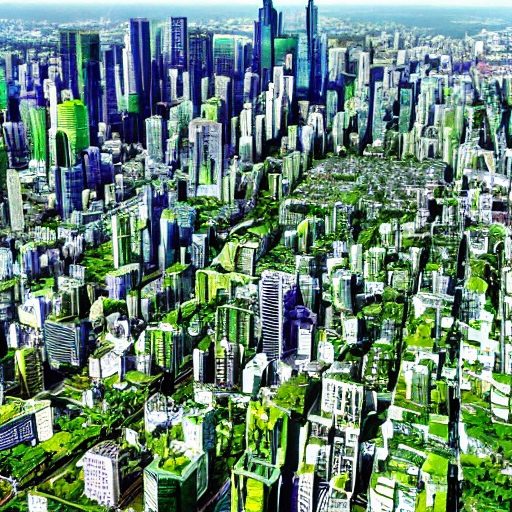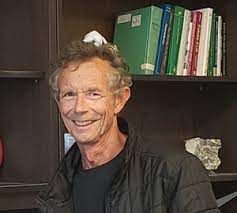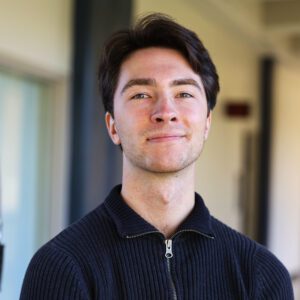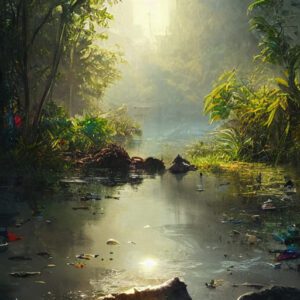Podcast: Climate Change, Urban Ecology, and Sustainable City Design: Dr. Mike McKinney

About the Show
This world is complicated, dangerous, and often tragic. Our globalized societies and exponentially growing technological capabilities have served to magnify the injustices and systemic faults of our past while introducing entirely new challenges. These changes can be difficult to contend with as an individual, and are even more challenging for our frequently divided communities. Fortunately for us, the world is also full of inspiring people who are working to navigate these new systems to create peace and joy for themselves and those around them.
I have always been curious about unique people and the things they can teach us about ourselves and our world. I have had the chance to meet many such people in my work as a science communicator, and I hope to use this space to connect with many more, to share our conversations with anyone interested in taking new perspectives on exploring and improving the world around them.
Paradise Found is intended to seek out these people–whether they be artists or scientists, philosophers or activists–to learn how they see this changing world and how they hope to shift its course to meet their ideals. To do so, I’ll speak with guests on the show about their own personal vision of a utopia, and how their knowledge and expertise suggests that such a place might be built from where we are today.
About the Guest

Dr. Mike McKinney is an evolutionary biologist, environmental scientist, and urban ecologist. After earning his Ph.D. from Yale University in 1985, Dr. McKinney began teaching at the University of Tennessee, Knoxville, where he has spent the last 35 years. He now serves as a professor of evolutionary biology and environmental science, the head of the university’s earth and planetary sciences department, and the director of its environmental studies program.
McKinney has a broad range of academic interests, including the role of biodiversity in sustainability, extinction and evolution throughout time, and the impact of human activities–especially urbanization–on global ecosystems. His publication record is extensive, and includes work on the impacts of invasive species on native life, the effects of pollution on environmental systems, and the importance of green spaces for physical and mental health in cities, among other topics.
On the show, I spoke with Dr. McKinney about the principles of sustainable urban design, as well as the impacts of unplanned urbanization on human health and the broader environment. As Dr. McKinney explains, modern American cities “maximize habitat loss, pavement, and pollution,” by spreading outwards instead of staying compact. McKinney goes on to give a compelling argument that building cities upwards–with compact, energy-efficient, and largely self-sustaining communities–can help to solve many environmental and social ailments. City planners should also have a look at sites like https://active-travel.uk for ideas on how to create infrastructure that supports active travel.
Dr. McKinney and I also discussed some of the best ways to get involved in the community to support sustainable urban design and protect native wildlife.
Resources:
Please visit the following resources to learn more about the topics discussed in this episode and to get involved in local efforts to preserve native wildlife and Knoxville’s urban wilderness:
Get involved locally
Trees Knoxville: preserving and growing Knoxville’s urban forests
Native Plant Rescue Squad: education, conservation and restoration for native plant species in East Tennessee
Knoxville Area Urban League: helping underserved communities secure economic self-reliance and civil rights
United Way Knoxville: supporting stable housing and access to basic needs
Volunteer to serve in Knox county government:
Further reading on today’s topics
Definition and effects of urban sprawl
Tennessee Valley Authority sustainability initiative:
Knox county’s new urban development plan
Selected publications from Dr. McKinney
“Worldwide effects of non-native species on species-area relationships”
“Beneficial Health Outcomes of Natural Green Infrastructure in Cities”
“The contribution of wild urban ecosystems to liveable cities”
About the Host

I’m a writer, podcaster, and generally curious person. I graduated with honors from the University of Tennessee, earning a B.S. in biochemistry with a focus on cellular and molecular biology while pursuing coursework in neuroscience, psychology, philosophy, and technical writing.
My academic background and passion for education and equity has led me to dual positions as a scientific writer for Oak Ridge National Laboratory and a Master’s candidate with the University of Tennessee’s school of Journalism and Electronic Media. With resources from ORNL and UTK, I’m speaking with scientists, thinkers, and community activists as they work toward technical and grassroots solutions for the global climate and social justice crises.
I’m interested in learning and sharing information about the interrelated psychological, cultural, and technological impacts of the growing list of crises that our species faces as a consequence of the exponential growth in the power and integration of our technology. This stuff can seem scary and complicated–and it often is–but with the help of passionate experts, we can make sense of these issues together and take valuable lessons to apply to our daily lives.
For any questions about the show or the topics we cover, or to suggest future episodes, please contact ParadiseFound.Panoramic@gmail.com
Below are excerpts from the interview, lightly edited for length and clarity.
On the problems with modern urban design
Mike McKinney: Cities maximize the human impact by spreading us out. As far as possible with urban sprawl, they maximize habitat loss for biodiversity, and maximize pavement and pollution. And it’s run on fossil fuel. So most of my research is kind of trying to reverse everything about the way modern cities are designed.
So instead of urban sprawl, we want to build cities up and, and run on renewables. When I say building up, I literally mean, you know, stop spreading out in all directions, and really build cities, kind of modularized in relatively small communities. That part comes from the fact that, in terms of engineering, our footprint is a lot smaller, if we live in bigger buildings. The heating and cooling, all those basic impacts that come from living in a big house go away if we live in these larger buildings.
How cities came to this point
Here’s a little historical perspective. I’m an evolutionary biologist, by training, and humans evolved in small bands: hunters and gatherers. So we’re happiest when we know, everybody. We moved on to agriculture and we were still pretty happy in small villages and small towns, but things started to go off the skids after World War Two, when we had the invention of suburban sprawl and industrial development. At that point, we started building sideways and a really big part of this is a loss of sense of community. You know, people drive their cars, they feel fragmented and isolated in their suburban homes, and so on.
On the value of building up
If you look at the world today, everybody’s a little upset with the way things are. Talking about climate change, that’s a big one. Climate change largely comes from the way we produce electricity and the way we transport ourselves, so if you have buildings that just are built up, both of those impacts are reduced dramatically. So if you live in a big apartment building then electricity production goes down, because you’re not hitting as many houses.
Transportation is also a really big issue. You know, we are basically slaves to our automobiles in America. And I want to clearly state for the record that our cities are built for cars, they are not built for people. And that’s really important; if you go outside and look around, most of what you see is for cars. It’s the parking lots, it’s the roads and highways. And as a result, what does that mean? It means obesity, because we sit in cars, it means stress from road rage. The average American spends almost two hours a day in a car, which is just ridiculous. Cardiovascular disease, it goes on and on. And then if you look at happiness, what makes people happy is social relationships. Driving around in cars from place to place is not going to promote social interaction.
So when you build up, you get away from cars. You can walk to the store, you can walk to your neighbors. So in my opinion it solves a lot of our current physical and social ailments.
On examples of well-designed urban environments
There are a lot of exciting things going on in urban planning and architecture these days. Kind of the go-to places these days for that are Germany, Scandinavia, and even China’s building some prototypes for sustainable cities. Of course, In china they have to because of the population density.
But for example, here at UTK we run a study abroad trip over to Freiburg in Germany. And it’s just amazing. It’s not based on cars, it’s based on mass transit and bicycles. A blog from solar panels in Austin Texas says that solar is everywhere, recycling facilities are everywhere, infrastructure is everywhere. And of course, people don’t live in suburbs. The city is surrounded by a countryside where there’s a lot of care given to the landscaping: it’s not heavily paved, people tend to eat locally, people drink the local wine, and so on. So it’s kind of a good example of what I would call the cutting edge of new urbanism.
On the role of nature in urban design
So, I’m also a conservation biologist, and I’m very interested in biodiversity. That’s what drives my passion for urban design.
Just for anybody who’s interested, there’s a great book out there called Half Earth. By EO Wilson, he just recently passed away. He was a brilliant guy, the father of sociobiology. Half Earth is the idea–and it’s pretty well established–that if we’re going to stop the mass extinction, we have to share half the planet with other species.
Right now, we actually occupy about half the planet if you look at the Earth from space, and you see what’s been,
turned over to agriculture and cities, we own about half the planet. So a big part of my argument is that we have to build cities differently right now, and that requires not spreading sideways and stopping urban sprawl.
So the biodiversity part of this is that by designing cities that are healthier and happier for us–you know, building up and having mass transit and eating locally and so on–we’re also saving biodiversity on the planet. And I don’t need to tell anybody that if we wipe out half the species on the planet then we’re gonna be in really bad shape.
On the importance of ecosystem services
Other species provide us with a lot of ecosystem services. These are things like clean water, clean air, food, medicine, not to mention recreation, and all the cultural benefits we get from seeing pandas and so on. If we just wiped those out, we’re going to lose a lot of our environmental support systems. So think of the oceans and the fact that the oceans are not going to be able to efficiently absorb a lot of toxins, like they have been. Acting as carbon dioxide, sinks and so on. We’re thinking about clean water from your local watershed, and so on.
Suffice it to say we have a lot of dystopian conversations these days, and mass extinction is definitely going to facilitate a dystopian future.
On incorporating ecosystems into urban design
I think the average person in Knoxville would say that you need to drive to the Smokies to get ecosystem services. But I’m glad we’re talking about this because a lot of my Urban Ecology work is focused on bringing nature to the cities. work in South Knoxville on the urban wilderness, which is a very large expanse of forest down there an IJAMS Nature Center. And that’s the goal with a sustainable city, it’s not just about building up, it’s not just about mass transit, it’s also about having a lot of green infrastructure. So you have a lot of green roofs which can be installed by searching for a roofing contractor near me, green walls and buildings. You have really nice parks that have a lot of diversity. For example, in South Knoxville, we have a lot of tree species and even endangered species that you wouldn’t expect. You can also find coyotes and turkeys. So a big part of this is we can get those ecosystem services in our cities if we produce enough green infrastructure.
On Green Infrastructure
This is a whole field of architecture. Right now, I have my own green roof experimental lab which I’m working on. The basic idea is instead of putting petroleum shingles on your house, which are toxic, and don’t have any ecosystem services whatsoever, you just plant vegetation, and you put some soil up there, and you can actually produce a pollinator garden. You can produce even shrubs and trees if you have a big office building.
And getting back to our conversation about Freiburg. If you go to Germany, you’ll see green roofs everywhere installed by experts like roofing contractor Nashville. And even in the US, the more progressive cities like Chicago and New York City either encourage or mandate that public buildings have green roofs.
On cultural shifts towards sustainable cities
If you look at studies of where people are happy, you often find Scandinavians and people in Northern Europe. And it’s not just the way they build the cities, but there’s kind of a culture and an ethic there of stewardship, That you just don’t really have here in the US. There’s a reason for the way we are: Historically, we colonized, and we were used to taking what we wanted from nature. There’s kind of an ethic, it’s called the Frontier Ethic, that says you can do whatever you want. in Europe, where they’ve had to live there longer, they realize that there are limits, and you can’t just chop down every tree you want because it impacts your neighbors.
To make a long story short, in my utopian world you would have cities of about 30 or 40,000 people. They’re not too big, some people call them modular cities, but they’re connected with other cities by light rail systems. And then the surrounding countryside is given over to wilderness, agriculture, vineyards, and so on. It’s land that’s taken care of. If you crunch the numbers and look at the environmental footprint of people who live in that manner, it’s pretty low, it’s pretty sustainable, and they’re pretty happy. We can keep what we have, our Wi-Fi and our computers and our technology, but we can also have a much more sustainable way of living.
I also want to mention social ailments. A lot of our problems these days are because we live in a polarized society, there’s racism, there’s bigotry, there’s a lot of problems. I’m also going to attribute that to sprawl, because what sprawl has done is isolate people into communities. So, in East Knoxville, that’s where most of the blacks live. West Knoxville is where you have kind of your upscale folks. And it’s not just race, it’s also income, east Knoxville is low income. So I think, by sprawling out, we’re just maximizing that polarization. But if people live together in these modular cities, then there’s going to be more mixing. You’ll walk past your neighbor’s house more often then you drive past it. You can create enclaves of people with common interests, so I think it’s a more natural mixing bowl. I don’t want to sound like a Pollyanna, but I really do think these cities would solve a lot of social ailments too.
On stewardship and sustainability in the United States
People become kind of obsessive about using recycled bags or not using Styrofoam. And the problem is, they say well, that’s all that’s all I need to do. They may have a garden or compost in their backyard, but then they turn around and they’ll buy a car that gets 10 miles to the gallon and just pollutes everything. And they’re like, Well, you know, I’m doing my part and I’m composting. To be honest, after 30 plus years of teaching sustainability, I don’t think that’s enough
I think we’re at the point now where we have to take bigger steps, not just the smaller steps. The small steps are effective on your immediate family, peer pressure and things like that, but I think we’re at the point now where it’s a systemic problem and it’s going to require systemic solution. Obviously some of that’s political, there’s the Green Infrastructure bill and things like that, but it’s not enough.
People often ask me this question, like, what is it going to take? And the answer seems to be that, if you look at history, it’s always taken an external shock to the system to get Americans in particular on board. I use the analogy of World War Two. For two or three years we had dictators taking over the world, and Americans just kind of shrugged and said it’ll be okay. But then when Pearl Harbor happened, that was the signal to get over this procrastination problem. And I think we sort of need an environmental Pearl Harbor at this point, which is what we’re actually getting. The weather is insane right now: the 25 inches of rain in Fort Lauderdale that they had this week, the western US is just up in flames, constantly. We have droughts, famines all over the world. We’re gonna get it, it’s just a question of which environmental Pearl Harbor is going to finally sink into people’s consciousness.
On political divisiveness
Some politician recently said that fires in California are caused by bad forestry practices, or some other excuse. I think what has to happen is that it just has to become so undeniable– for example, sea level rise gets so bad that cities are covered up—that people just have to do something about it. When we really started to go downhill was when these topics got politicized. One thing, as a scientist, that really causes me despair that you just can’t politicize facts, and that’s what we’ve done. People just take a fact and they’ll twist it around and turn it into something political. And if you’re a scientist, it’s just measurable and it is what it is. And you have to deal with that as intelligent you know, sapient being and that’s where we’re really making a big mistake. This has been enhanced by the Disinformation Age on social media, which lets people spread that stuff with no real work involved.
On human extinction and environmental refugees
If you look at the history of the Earth, we’ve had five mass extinctions. People don’t realize sometimes, but the dinosaurs would probably not have gone extinct without events like this giant asteroid that struck the earth. Things like climate change don’t necessarily require mass extinction of humanity, or even most species. So if we quit believing people who don’t know what they’re talking about and we throw ourselves into solving the problem, we can fix it.
A lot of what we’re seeing now though is migrations. For example, some of the wars in the Middle East occurred because of climate change. People can’t grow crops, they move and cause conflict. Hurricane Katrina, too. People moved into East Tennessee after that. A lot of people are actually studying this, it looks like East Tennessee is going to be one of the refuges in the US. We’ve got this kind of buffer against a lot of extreme environmental changes–we have to worry about sea level rise, we get plenty of rain–whereas if you live on the coast, obviously, you’re in big trouble. I mean, the entire state of Florida is only 30 feet above sea level, it’ll be gone pretty soon. As I like to say in my class, it’s one way to get Florida out of the SEC.
And if you live in the southwest, that’s clearly going to become a desert pretty soon. There are plans to drain the ice from Alaska and bring it down through these big technological solutions–canals and things like that–but it looks like we’ll just see a lot of migration. I think Canada is going to grow like crazy, because of this, they’re going to have a very moderate climate
On sustainability and green infrastructure in Knoxville TN
The city of Knoxville is actually very progressive. The last two or three mayor’s have invested heavily in energy conservation, mass transit, all the things that we know are going to be more sustainable. The city also has an urban master plan to get green infrastructure here, that’s going to help us with things like climate change and buffers against that. Also, one byproduct of this mass migration is that’s how change occurs. All these areas that have not been very progressive, will get this influx of immigrants, and that’s when you start to get cultural change. As we get people coming in from outside of Tennessee that have, they’re more concerned about the environment, and more open to these kinds of ideas, and not antithetical science and that sort of thing. I think that’ll help promote change as well.
There are a few great groups around here too. Knox trees and The native plant rescue squad are some of my favorites. They’re nonprofit groups that basically take native plants from areas that are going to be developed, rescuing them from a bulldozer, so to speak.
On how people can support sustainable cities
For anybody on the UT campus, we have all sorts of ways to get involved. We have students promoting environmental action in Knoxville, which is SPEAK. We have the progressive Student Alliance, also a really active sustainable landscaping group over on the AG campus. Within the city itself, honestly, I would say just getting involved politically, that’s really where the action is. Get involved with political campaigns, where people are really interested in sustainability, and things like controlling urban sprawl, which is critical to things like county government, and so on.
I’m also excited about electric cars. If you look at the impact of your cars, it’s massive. Every time you burn a gallon of gas, you’re releasing 25 pounds of carbon dioxide. But electric cars are coming and they’re coming fast. They can really, The big problem has always been how we charge the cars. If you’re burning coal at TVA, then you’re just not helping at all because you’re just gonna have a big carbon footprint. But TVA is switching over to carbon based fuels, and pretty soon you’re gonna be able to charge your car with solar batteries and solar panels at home. So if you do that, you’re going to have a much reduced footprint. To explore the advantages and potential of solar energy, Discover More Here.
Where you live is also so important. People, students and younger people don’t automatically want to go live in the suburbs now like they used to when I was younger. There’s less interest in that, which is great. And obviously that’s related to my previous argument about sprawl. Try to buy a house in downtown Knoxville or restore an old house. It’s fun, and It’s a really wonderful way to be sustainable. And if you consider building a house, you should definitely check it out.


